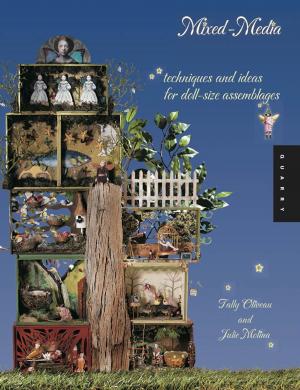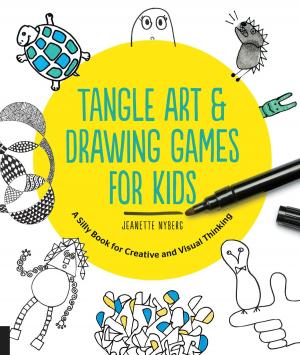Brain Lab for Kids
52 Mind-Blowing Experiments, Models, and Activities to Explore Neuroscience
Kids, Natural World, Anatomy and Physiology| Author: | Eric H. Chudler, Ph.D. | ISBN: | 9781631596209 |
| Publisher: | Quarry Books | Publication: | March 6, 2018 |
| Imprint: | Language: | English |
| Author: | Eric H. Chudler, Ph.D. |
| ISBN: | 9781631596209 |
| Publisher: | Quarry Books |
| Publication: | March 6, 2018 |
| Imprint: | |
| Language: | English |
Riding a bicycle, learning a new language, catching a ball, reading a book: these activities and everything else we see, hear, feel, and do are made possible by the soft, whitish-pink substance inside our heads called the brain.
And yet, we take for granted many of the amazing things our brain does for us. And so, Brain Lab for Kids offers 52 family-friendly activities, science experiments, and models to help us understand how the brain accomplishes all that it does.
Each lab in this book is divided into several sections. After the title of each lab, the approximate time it will take to do the experiment is listed. The “Methods” section provides a step-by-step guide of the procedures and materials you will need to complete the lab. The science behind an experiment is explained in the “What’s Going On” section. “Brain Facts” are interesting, fun, and perhaps surprising bits of trivia related to each lab. Finally, “Thinking Deeper” has suggestions that you can use to take each lab further.
The expanding field of brain science, also called neuroscience, offers the opportunity for all of us to learn about ourselves and others, and how we can better communicate, motivate, inspire and just plain collaborate together.
Riding a bicycle, learning a new language, catching a ball, reading a book: these activities and everything else we see, hear, feel, and do are made possible by the soft, whitish-pink substance inside our heads called the brain.
And yet, we take for granted many of the amazing things our brain does for us. And so, Brain Lab for Kids offers 52 family-friendly activities, science experiments, and models to help us understand how the brain accomplishes all that it does.
Each lab in this book is divided into several sections. After the title of each lab, the approximate time it will take to do the experiment is listed. The “Methods” section provides a step-by-step guide of the procedures and materials you will need to complete the lab. The science behind an experiment is explained in the “What’s Going On” section. “Brain Facts” are interesting, fun, and perhaps surprising bits of trivia related to each lab. Finally, “Thinking Deeper” has suggestions that you can use to take each lab further.
The expanding field of brain science, also called neuroscience, offers the opportunity for all of us to learn about ourselves and others, and how we can better communicate, motivate, inspire and just plain collaborate together.















